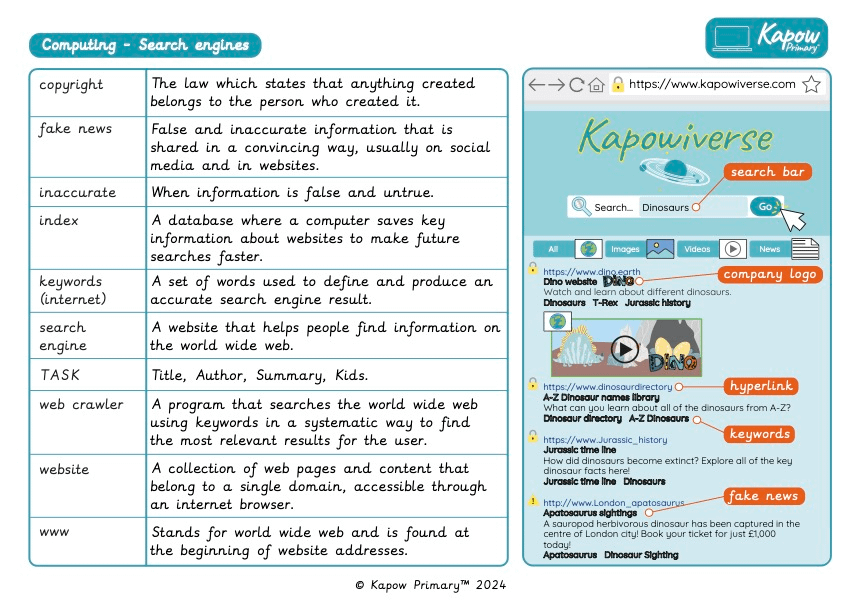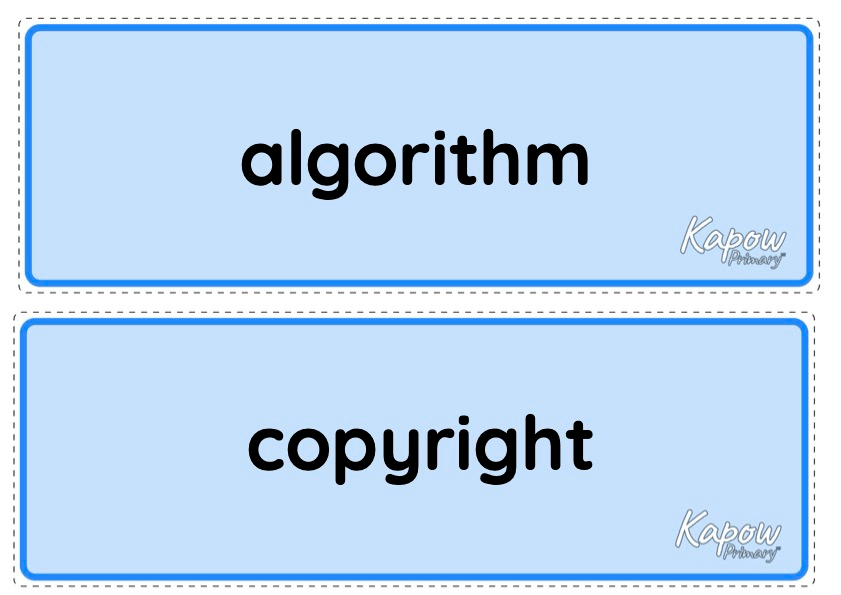Search engines
Understanding how search engines work and developing searching skills to find relevant and accurate information online.
New statutory RSHE guidance is here. We’re creating our brand new RSE & PSHE scheme ready for September 2026. Learn more
- Subjects >
- Computing >
- Key stage 2 >
- Year 5 >
-
Computing systems and networks: Search engines
Unit outcomes
Pupils who are secure will be able to:
- Explain what a search engine is, suggest several search engines to use and explain how to use them to find websites and information.
- Suggest that things online are not always true and recognise what to check for.
- Explain why keywords are important and what TASK stands for, using these strategies to search effectively.
- Recognise the terms ‘copyright’ and ‘fair use’ and combine text and images in a poster.
- Make parallels between book searching and internet searching, explaining the role of web crawlers and recognising that results are rated to decide rank.
Suggested prior learning
Google: Computing systems and networks: Collaborative learning
If your school does not have access to Google, there is also a Microsoft version of this unit.
Lessons
Lesson 1: Searching basics
- To understand what a search engine is and how to use it.
Lesson 2: Inaccurate information
- To be aware that not everything online is true.
Lesson 3: Web quest
- To search effectively.
Lesson 4: Information poster
- To create an informative poster.
Lesson 5: Web crawlers
- To understand how search engines work.
Key skills
Key knowledge
Related content
Unit resources

Knowledge organiser – Computing Y5: Search engines
Aimed at pupils, a single page which gives key facts and definitions from the unit "Computing systems and networks: Search…

Vocabulary display – Computing Y5: Search engines
A display version of the key vocabulary from the Search engines unit.
Cross-curricular opportunities
RSE: Online Relationships – online shared data, online friendships and the risks of strangers.
English: Spoken Language – consider and evaluate different viewpoints, attending to and building on the contributions of others.

